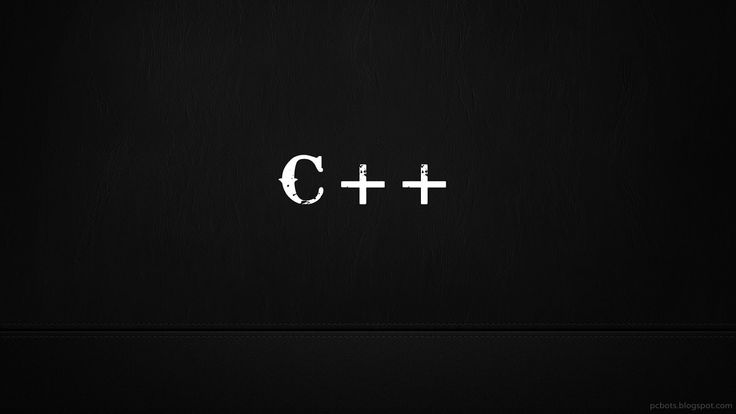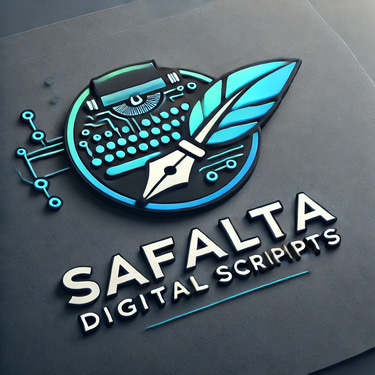Mastering C++: The Ultimate Roadmap with Books, Tutorials, Courses, Projects, and Software
A comprehensive manual for learning C++ technology. We cover everything from roadmaps and books to tutorials, courses, and hands-on projects. Get essential software, cheat sheets, interview questions, pros and cons, and real-life examples to help you excel efficiently and effectively.
8/20/20246 min read


Introduction:
Brief Overview of C++ -
C++ is another higher-level language that was created by Bjarne Stroustrup in 1985. It is based on the C language but with additional features like the OOP, such as classes and inheritance, to handle large and complicated programs. C++ has been designed with procedural, object-oriented, and generic programming paradigms making it the most flexible language to program.
Used in system software, game development domains, and embedded systems, C++ is well regarded for its performance. It is a good language for working with system programming because of the low-level memory access, and it has a powerful standard library incorporated into the engine, thus making it possible to produce fast applications and consume fewer resources. Regardless of the age, it is well over three decades now, that C++ has been and continues to be one of the most important languages in the software development field.
Purpose of the Blog -
The blog’s objective is to create an all-in-one resource on how to learn C++ effectively by listing books, tutorials, courses, projects, and tools. This is a useful learning system that provides systematic guidance regarding the advancements of C++ programming language for newcomers as well as for professional programmers who want to explore and enrich their programming skills with more efficiency and perfection.
Target Audience -
This blog will be suitable for a wide variety of learners including people who have never programmed before, learners who are still new to C++ but want to progress to a higher level, and learners who have a keen interest in developing themselves into professional software developers in fields such as game development, systems programming or even embedded systems. They also explored it when they were already a programmer but with no training and would like to be guided by a well-structured and complete course.
C++ Roadmap :
Understanding the Learning Path -
Start with the Basics: First, start with a general understanding of C++ language syntax, variables, Data types, loops, and Functions.
Intermediate Topics: Go on to other concepts of object-oriented programming such as classes, objects, inheritance, polymorphism, and other concepts such as encapsulation.
Advanced Topics: Lastly, learn about other topics such as templates, STL, and memory management to have efficient and reusable code generation.
Timeframe for Learning -
Phase 1: Basics (about 4-6 weeks)
Time Commitment: 1-2 hours/day
Focus: Objectives Definition of syntax and variables Data types, control structures, and basic functions.
Tips: For beginners, begin with performing basic movements, engage with online platforms, and perform it daily.
Phase 2: Intermediate (6-8 weeks)
Time Commitment: 1-2 hours/day
Focus: Classes, inheritance, and polymorphism, object-oriented programming (OOP).
Tips: Develop minor applications that use OOP principles and give those to coding groups for evaluation.
Phase 3: Advanced (8-10 weeks).
Time Commitment: 1-2 hours/day
Focus: Templates, STL, and memory management.
Tips: Experiment with new and unique functionalities in assignments, work on memory management, and take up projects in an open repository.
Overall Tips: Be consistent use the ideas through some practical assignments, and partake in expert advice for improving your work start with simpler concepts and work your way up.
Top C++ Books to Read -
Beginner-Friendly Books:
“C++ Primer” by Stanley Lippman: Here are outlined the fundamental principles of C++ programming language enabling the reader with basic to intermediate knowledge of the language for easy understanding.
“Programming: Principles and Practice Using C++” by Bjarne Stroustrup: This is probably the best C++Book out there as it is written by the inventor of C++, Bjarne Stroustrup.
Intermediate to Advanced Books:
“Effective C++” by Scott Meyers: The book I warmly encourage contains 55 concrete suggestions on how to enhance your C++ code, aiming at its readability, performance, and ease of evolution.
“The C++ Standard Library: A Tutorial and Reference” by Nicolai M. Josuttis: A guide to the versatile C++ Standard Library and comes in handy when working with STL and memory.
Why Books are Important:
Solidifying Understanding: Books are more descriptive, and systematic in manner, and as much as it is direct the reader would be developing a robust foundation on the subject of C++.
Foundation Building: Through reading learners can assimilate information and can go through complicated concepts in their own time hence enabling them to get a good grounding which is important in advanced programming.
Best C++ Tutorials -
GeeksforGeeks: It provides in-depth C++ tutorials, ranging from basic syntax to the most advanced ones. It strongly focuses on coding practice and problem-solving.
Codecademy: An interactive tutorial for beginners guides through step-by-step learning of C++'s very basics, with hands-on exercises that instantly show feedback.
Video Tutorials:
Udemy: Courses like "Beginning C++ Programming" give structured lessons that go with real-world projects—best for visual learners.
YouTube Channels: It provides free high-quality video tutorials. These channels, such as The Cherno, explain complicated C++ concepts through visualization, so it is a lot easier to understand, like object-oriented programming and memory management.
Pros of Video Learning:
Through demonstration, visual tutorials can clarify complex concepts; this style is much easier to follow along with and apply the knowledge within your coding projects.
Must-Take C++ Courses -
Beginner Courses:
Coursera: "C++ For C Programmers" by the University of California, Santa Cruz: A course perfectly suitable for beginners, thus covering the very basics of C++ and object-oriented programming with a focus on the transition from C to C++.
edX: "Introduction to C++" by Microsoft: It imparts basic concepts such as syntax, data structures, and basic algorithms to the students and further includes hands-on coding exercises.
Advanced Courses:
Coursera: "Data Structures and Algorithms in C++" by University of California, San Diego: It focuses on advanced topics; complex data structures, and algorithms with problem-solving and performance optimization.
Udemy: "Advanced C++ Programming": This course covers in greater detail advanced concepts of C++ such as templates, STL, and memory management, and offers hands-on practice with projects close enough to real life. Some courses also offer the possibility of certification at the end.
How to Choose a Course?:
Level of skill: Always take courses that put you where you are. If you're new, do basics; then, after you have built confidence, you go to advance.
Learning Style: For structured learning, step-by-step, go to Coursera; if you learn by projects, then Udemy courses with hands-on exercises would be the best.
Hands-On C++ Projects -
Beginner Projects:
Calculator: A very simple calculator that can perform basic arithmetic operations. This project helps solidify key concepts, such as variables, loops, and functions.
Simple Game (e.g., Tic-Tac-Toe): Develop a text-based game that introduces basic logic, control structures, and user input handling.
Intermediate Projects:
Text-Based Adventure Game: A multiple-branch text-based game. This is aimed at enhancing skills in object-oriented programming, inclusive of classes and inheritance.
Personal Expense Tracker: Develop an application to track personal expenses; implementation involves file handling, data management, and user interface.
Advanced Projects:
Small Game Engine: Design a primitive game engine dealing with complex topics of memory management, real-time processing, and graphics rendering.
Database Management System: Implement a data management system for storage, retrieval, and manipulation of database files.
Needless to say, the latter two projects are of utmost importance to become proficient in inculcating advanced C++ concepts and to develop a thorough understanding and proficiency in data structures and algorithms.
Advanced projects prove that one can rise to complex challenges and are of enormous value for professional inclusion into the portfolio, showcasing the expertise to potential employers.
Software Development Tools -
Major Tools for C++ Development:
Visual Studio: This is a fully-featured IDE with great debugging tools; it's particularly good for Windows development. Installation involves downloading and installing the Visual Studio Installer and then choosing the C++ workload during setup.
CLion: Cross-platform IDE. It offers very capable code analysis and refactoring tools. Installation is either through the JetBrains Toolbox or directly from CLion's website.
Code::Blocks: Lightweight, open-source IDE, extensible, and customizable. Setting it up involves downloading from the official Code::Blocks website and installation.
Debugging and Testing Tools:
GDB (GNU Debugger): This is an extremely powerful command-line debugger that comes with GCC. It usually auto-installs in most systems as part of the GCC installation.
Google Test: This is an extensive C++ testing framework with a potential easy path to integrate into various development environments. Installation is either by a package manager or from source, then integration with your IDE.
Version Control:
Git: Sophisticated source code control and collaboration tool that keeps a record of all changes to your project. Set it up through the installation of Git, then use it with GitHub or GitLab for version tracking and collaborative development.
Conclusion -
Recap of Roadmap: Start learning C++ with basic concepts: syntax, variables, and control structures. Then, pursue the intermediate ones: object-oriented programming and classes. Finish with the advanced topics of templates, STL, and memory management.
Call to Action: Kick off your C++ learning by using suggested books, tutorials, and courses. Put your knowledge into action by developing projects exercising your knowledge and using the must-have development tools for learning and practicing the skills.
Final Thoughts: Mastering C++ can be very rewarding in the long term, for example, when one intends to establish a career in many other fields related to software. One can dedicate time and effort to learning C++ due to the great and diversified career opportunities in technology.
Thank you for reading! We hope this guide helps you on your journey to mastering C++. If you have any questions or suggestions, feel free to write to me.
Leave your comment here

